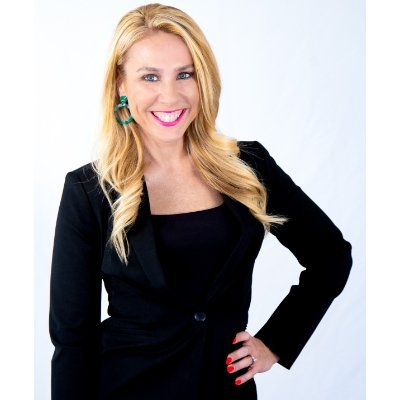
Michelle Boyce discusses qualified funds
Listen to the interview on the Business Innovators Radio Network: https://businessinnovatorsradio.com/interview-w-michelle-boyce-ricp-vp-w-rosenzweig-financial-services-discussing-qualified-funds-how-is-too-much/
Michelle Boyce, Vice President of Rosenzweig Financial Services, to discuss the concept of qualified funds. Michelle explains that qualified funds refer to retirement accounts such as 401(k)s, 403(b)s, IRAs, and SEPs, which are tax-deferred. This means that while contributions to these accounts are made pre-tax, taxes will be owed upon withdrawal during retirement. The conversation highlights the importance of understanding the nature of these funds and the implications of tax deferral for long-term financial planning.
Qualified funds, such as 401(k)s and IRAs, are vital components of many individuals’ retirement planning strategies. These accounts are classified as tax-deferred retirement accounts, meaning that contributions made to them are not taxed at the time of deposit. Instead, taxes are paid upon withdrawal, typically during retirement when individuals may find themselves in a lower tax bracket. This structure offers significant advantages for wealth accumulation but also presents challenges during the distribution phase, particularly due to the imposition of required minimum distributions (RMDs).
Tax-Deferred Growth: One of the primary advantages of qualified funds is the ability to grow investments without immediate tax implications. This allows for compounding growth over time, as the entire amount contributed can be invested rather than being reduced by taxes.
Employer Contributions: Many employers offer matching contributions to 401(k) plans, significantly enhancing the amount saved for retirement. This “free money” serves as an incentive for employees to participate in these plans.
Higher Contribution Limits: Compared to other retirement accounts, such as IRAs, 401(k)s have higher contribution limits. For instance, individuals can contribute up to $23,000 annually to a 401(k), while the limit for IRAs is currently $7,000. This allows for more substantial retirement savings.
Michelle explained: “While qualified funds like 401(k)s and IRAs offer significant benefits for accumulating wealth, they also come with challenges during the distribution phase, particularly due to RMDs. Understanding these dynamics and planning accordingly can help individuals maximize their retirement savings and minimize tax burdens.”
Qualified funds are essentially tax-deferred accounts designed to encourage saving for retirement. When individuals contribute to these accounts, they do so without paying taxes on the money at that moment. Instead, taxes are paid when the funds are withdrawn, usually during retirement when individuals may be in a lower tax bracket. However, this deferral can lead to significant tax liabilities later on, especially if the account has grown substantially over the years.
One of the key points Michelle explained is the importance of not over-contributing to qualified funds. While these accounts are excellent for accumulating wealth, they can be less advantageous when it comes to distributing that wealth. For instance, once individuals reach the age of 73 (or 75 for those born after 1960), they are required to take minimum distributions (RMDs) from their qualified accounts. This requirement can lead to unexpected tax burdens, especially if individuals do not need the funds at that time.
To mitigate the tax implications of RMDs, individuals can employ various strategies. One effective approach is to consider Roth conversions, which allow individuals to convert their traditional IRAs or 401(k)s into Roth accounts. This strategy can help reduce future RMDs, as Roth IRAs do not have RMD requirements. Additionally, individuals can choose to withdraw more than the RMD amount to reduce the overall balance in their qualified accounts, thereby minimizing future tax liabilities.
Michelle shared: “For the past 20 years I have been helping individuals plan and save for their retirement. I am excited for the opportunity to reach more people and have that same positive impact so they can have the peace of mind they are doing things correctly for their own goals and dreams”
About Michelle Boyce
Michelle has over 20 years of experience in Financial Services and her main goal is to always focus on her client’s long-term financial planning strategy to optimize retirement income.
She prides herself on analyzing a financial situation, finding any potential issues, and creating adequate solutions to ensure her clients’ prosperous future. With her extensive insurance and planning experience, Michelle adds great knowledge to the already specialized team at RFS.
She has worked in various capacities in the financial industry from being part of top producer teams to teaching new financial advisors through agency leadership. Michelle’s passion is to help educate consumers by taking complex financial strategies and explaining them in an easy way to understand the concept. Michelle is originally from Pittsburgh, PA, and a graduate of Penn State University in Business.

